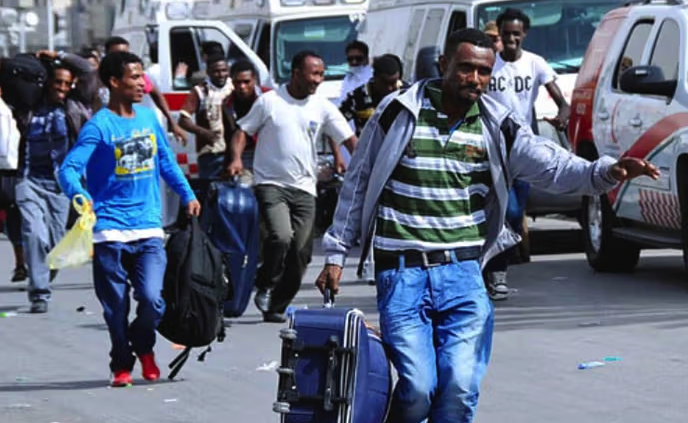Saudi Arabia has announced the suspension of its block work visa system, affecting a total of 14 countries, including several African nations.
The move halts both new and pending Temporary Work Visa (TWV) applications, creating uncertainty for sectors heavily reliant on foreign labor, particularly construction and domestic work.
Countries impacted include Egypt, Nigeria, Algeria, Sudan, Ethiopia, Tunisia, Morocco, as well as Indonesia, Iraq, Jordan, Yemen, India, Pakistan, and Bangladesh.
The block visas, which allow employers to recruit foreign workers through pre-approved quotas, have been widely used by migrant workers seeking employment opportunities in Saudi Arabia.
The suspension was observed on the Qiwa platform, Saudi Arabia’s labor management portal, and coincides with the Kingdom’s increased Saudization efforts policies aimed at boosting employment of Saudi nationals, especially in sectors like tourism, with quotas expected to rise between 2026 and 2028.
Officials have not officially explained the freeze but suggest it may last until the end of the Hajj season in June 2025, signaling a possible shift in Gulf labor policies and Africa–Saudi employment relations.
Saudi Arabia hosts a significant number of African migrant workers, particularly from Ethiopia and Kenya, many employed in domestic and low-wage sectors.
Ethiopia has launched initiatives to send up to 500,000 women to Saudi Arabia for domestic work—a move aimed at alleviating economic hardships but raising concerns about labor conditions. Kenya also has about 150,000 nationals working as domestic workers in the Kingdom.
Despite the economic benefits, many African workers face exploitation and abuse, often under Saudi Arabia’s controversial Kafala sponsorship system, which allows employers to exert excessive control over migrant workers.
The suspension of the block visa system may impact future employment flows but underscores ongoing tensions over labor rights and migration policies.



















